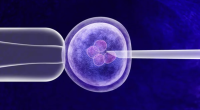Some people wonder if it’s the Genes vs Environment that Makes Us Sick; the truth is our genetic predisposition can amplify the impact of environmental factors like smoking or infectious pathogens, raising the likelihood of developing a range of health conditions, according to Dr. Artūras Petronis, a leading figure in the field of epigenetic studies of psychiatric disorders.
Dr. Petronis spearheads the Krembil Family Epigenetics Laboratory at the Centre for Addiction and Mental Health (CAMH) in Canada and holds a professorship in the psychiatry and pharmacology departments at the University of Toronto. In 2000, he became the first to initiate a comprehensive program of psychiatric epigenetics.
Epigenetics explores how our behaviors and the environment can induce changes that influence our gene expression. The term ‘epigenetics’ is increasingly gaining traction in longevity research, with scientists investigating whether resetting our epigenetic age could lead to longer, disease-free lives.
However, Dr. Petronis cautions that much remains unknown about manipulating the epigenetic clock, and the alterations caused by reversing it could resemble those associated with accelerated aging.
Demystifying Diseases through the Lens of Epigenetics

Dr. Artūras Petronis explains that a human cell harbors approximately three billion nucleotides, which require precise regulation. These gene regulators, or DNA sequences, are known as epigenetic factors.
Disruptions to the genome, specifically in functionally crucial regions of DNA sequences, can lead to disease. Monogenic disorders, characterized by a single gene mutation responsible for the disease, number in the hundreds of thousands.
According to Dr. Arturas, “The situation is more difficult in complex diseases, which are dominating and probably account for about 97% of human pathology. In these cases, genes do not decide if we get sick; they increase or change the predisposition to develop a disease. These regulatory mechanisms are probably even more important than changes in DNA sequences,”
Epigenetic mechanisms shed light on the intricacies of complex diseases. A striking example is discordance, where identical twins share the same genetic predisposition to a disease, yet only one develops it.
Dr. Petronis explains, “Since their genomes are identical and they share similar environments for the majority of their lives, it becomes challenging to pinpoint environmental factors that trigger the disease in one twin over the other. However, epigenetic factors possess the ability to respond to environmental cues, and these differential processes may account for the observed discordance.“
The Environment or The Gene: Who Is to Blame?
Dr. Petronis emphasizes that conclusively establishing a causal link between environmental factors and specific diseases is a challenging task, and only a handful of conditions have been unequivocally linked to environmental triggers.
The connection between smoking and lung cancer is well-documented, but smoking may not be the sole environmental culprit. While many individuals experiment with smoking, only a subset develops a nicotine addiction. This susceptibility to addiction and the unique effects of nicotine on individuals are influenced by our biology.
“This is where environmental factors and our inherent biological processes, which dictate our response to these environmental cues, begin to intertwine,” he explains.
Stressful life events are another commonly cited environmental factor. However, multiple twin studies have revealed that individuals possess a genetic predisposition to encountering these stressful situations.
Individuals with high-conflict personalities, characterized by specific inherent personality traits, often find themselves embroiled in stressful situations. This is not solely due to the presence of external stress but rather stems from their propensity to create such a microclimate around themselves. While we may formally classify this as stress originating from the environment, its roots lie deeply embedded within their personality. Dr. Artūras Petronis
While certain environmental factors, such as physical inactivity, have been firmly linked to an increased risk for several conditions, the role of the environment in diseases such as schizophrenia, Parkinson’s disease, or type 1 diabetes remains less clear.
“Studies have shown that nearly all diseases, even infectious ones, have a heritability component, as we respond to pathogens and viruses in unique ways. Some individuals are completely resistant, while others are highly susceptible. Our genes determine this susceptibility,” Petronis explained.
Given that schizophrenia’s heritability is around 70%, what can an individual with a family history of the disease do to minimize their risk of developing it? Petronis maintains there’s not much.
“According to some theories, marijuana use can elevate the risk or trigger psychosis. Therefore, it should be avoided. However, its impact is not particularly significant; it’s merely one of the factors we are better off understanding,” he adds.
Manipulating epigenetic clocks

Petronis says that aging is, in large part, an epigenetic process, as epigenomes of old cells significantly differ from young ones. In some diseases, epigenetic aging is accelerated and is a few years older than the chronological age.
“If aging is accelerated in a disease, we can chronologically explain that it is a process of the disease, that it is exhausting cells and genomes react to it,” he says.
However, slowed-down epigenetic aging may also be a sign of a disease and mean that changes are similarly bad as caused by accelerated aging.
Should we aim to reverse the epigenetic clock? Petronis says it could be a good idea if we knew exactly what needs to be reversed and would be able to control all the processes.
He adds, “There is always a risk that we would put it too much forward, that we would reverse only a part of the cell’s epigenome, and the result would be an intermediate variant.”










